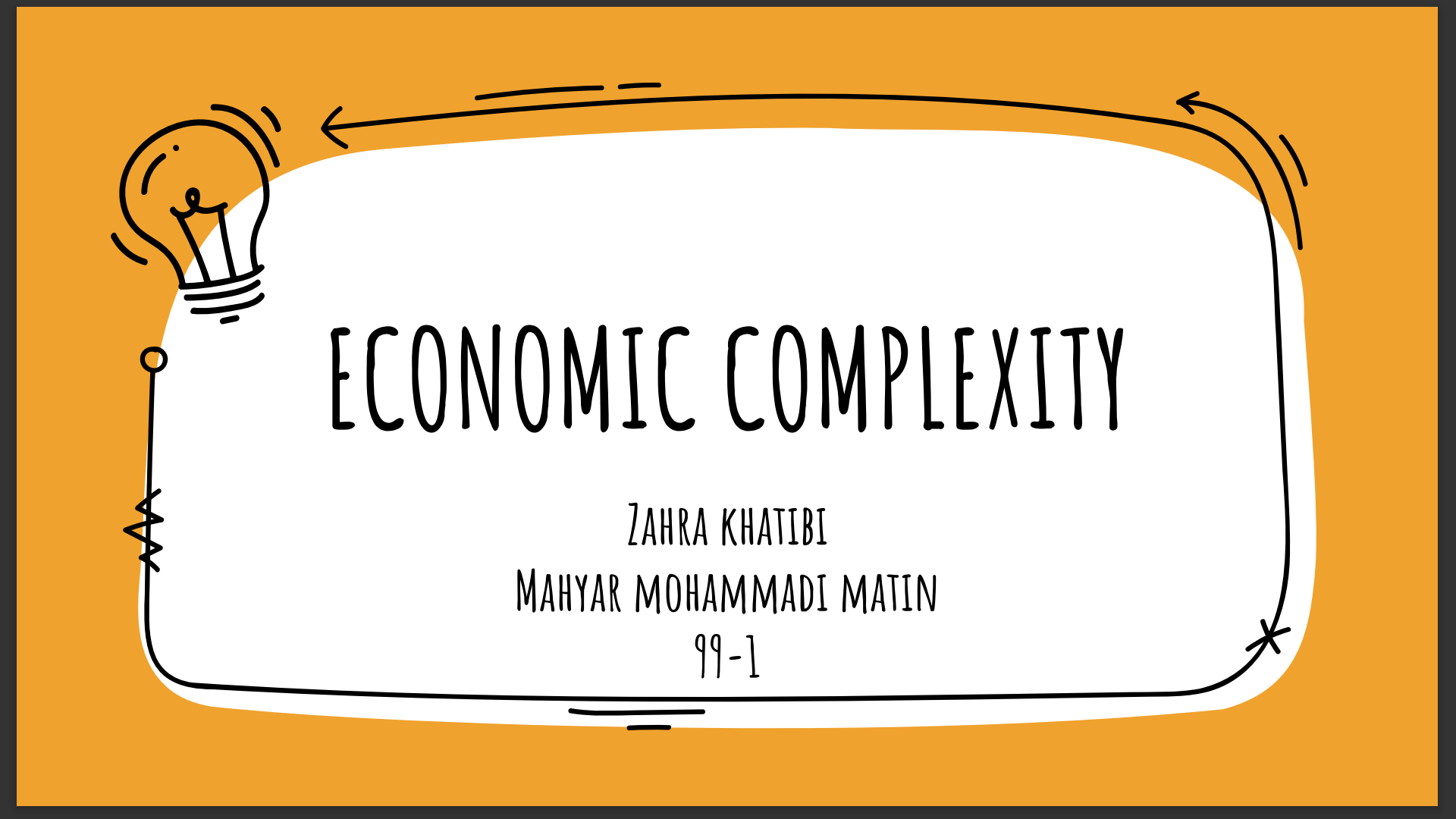Economic Complexity
Together with my colleague, Mahyar Mohammadi, we explored the significance of economic complexity and presented key statistics to illustrate its importance in our country’s economic landscape and their impact on long-term growth and prosperity. Our presentation aimed to raise awareness about the concept’s relevance and its impact on countries economic trajectory
Concept of Economic Complexity
Economic Complexity is a concept in Economics that explains diversity of a country’s Economic activities and the sophistication of its production processes. It transcends the mere measurement of a country’s GDP (Gross Domestic Product) and takes a closer look at the composition of its Economy, specifically focusing on the variety and complexity of the products and services it produces.
The theory of Economic Complexity proposes that countries boasting a more diverse and complex array of Economic activities are inclined to possess greater long-term growth potential. This correlation stems from the fact that Economic Complexity is frequently associated with innovation, technological advancement, and the capacity to adapt to evolving market conditions. Put simply, a country encompassing a broad spectrum of industries and products, particularly those demanding advanced skills and knowledge, is typically better poised for sustained Economic Development.
Quantifying Economic Complexity
Researchers commonly employ metrics such as the Economic Complexity Index (ECI) to gauge a country’s economic complexity. The ECI takes into account both the diversity and sophistication of a country’s exports to evaluate its level of economic complexity.
In summary, economic complexity serves as a valuable framework for comprehending the intricacies of a country’s economy, with profound implications for its long-term economic growth and development.
